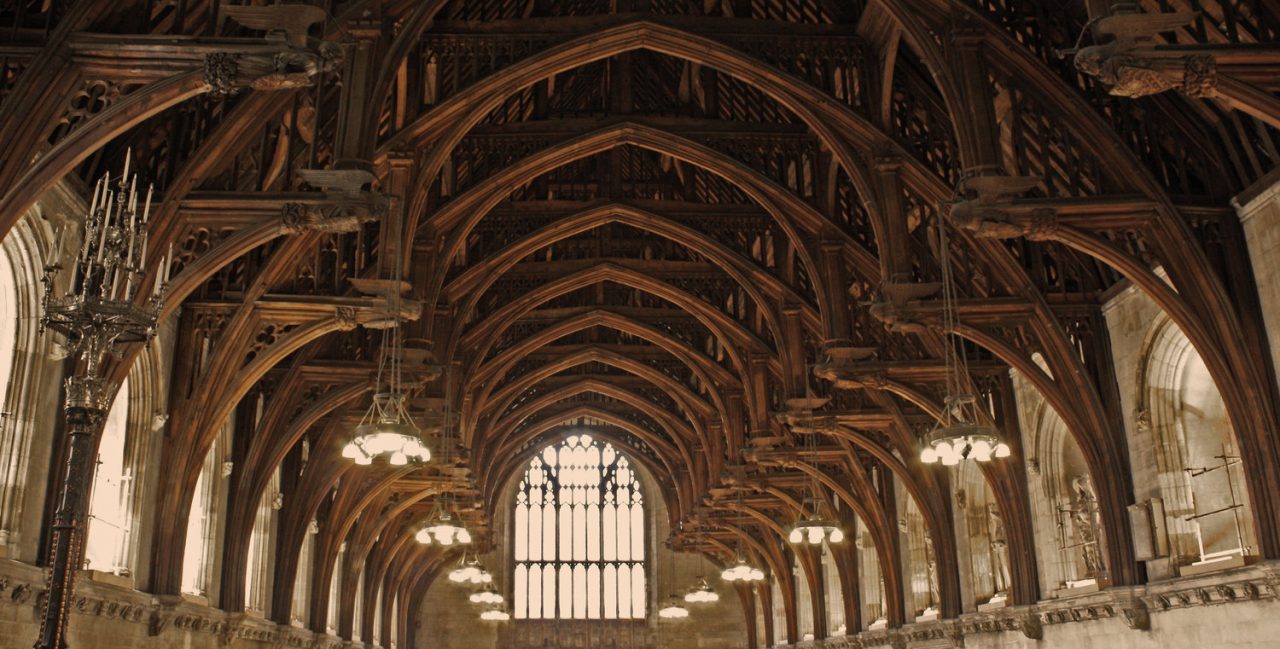
The White Ship, ladies and gentlemen. Or, as I like to call, the Titantic of the 12th century. There are some similarities, actually, though this one had a by far more marked impact on the English succession. The ship sank on November 25, 1120 and it carried many members of the Royal Family, not least of whom was William Adelin, Duke of Normandy and only son of King Henry I.
By 1120, Henry had been on the throne for 18 years, having succeeded his elder, unmarried brother in 1102. He quickly married Margaret of Scotland, who boasted Anglo-Saxon blood of her own, and fathered two children who lived until adulthood: Matilda and William Adelin. Matilda was married to the Holy Roman Emperor when she was just eight years old, while William was raised to inherit both England and Normandy, then linked by one rule.
This was a fresh way of looking at the inheritance, though that may have something to do with the fact Henry had only one son. His own father, William the Conqueror, had split England and Normandy between his two eldest sons, but it was his third son who unified them once more. However, unlike his own father, he didn’t have the option of splitting his dominions because the idea of giving a daughter an equal inheritance to a son was unthinkable. Also worth noting is that Henry was a firm believer in the power of royal blood – in other words, the children of kings, even daughters, had a better right to land than a king’s other male relations. But we’ll get there.
Matilda of Scotland died in 1118, leaving Henry devastated. With an eye to the succession, he quickly arranged another match with a teenager named Adeliza of Louvain, but her arrival in England was postponed. In the meantime, he also arranged the marriage of William with Matilda of Anjou, daughter of Fulk V, Count of Anjou. She joined Henry’s court in 1119 at the age of 13 or thereabouts.
Earlier in 1120, Henry named William duke of Normandy – it was common in the Middle Ages for sovereigns to elevate their heirs before their deaths so as to solidify their power base and help secure the succession. And William was glad to have it, for the Normans who ruled England had no particular love for the English and considered Normandy the more illustrious domain. As William once said, “When I am king, I will yoke the English like oxen to the plow.”
On November 25, Henry and his court were preparing to sail from Normandy to England at the Barfleur port. Henry boarded one ship and William another, a smattering of relations and courtiers split between them. William’s companions were mostly made up friends of a similar age (17), including two of his father’s illegitimate children: Matilda, Countess of Perche and Richard of Lincoln. Another companion was William’s first cousin, Stephen of Blois, son of Henry’s sister, Adela. The young party grew rowdy and drunk, including, presumably, some of those manning the ship’s helm. A number of those on board grew wary and begged off before they set sail, Stephen among them. Instead, he secured a spot for himself on Henry’s ship.
Henry’s ship left just as the sun was setting, but William’s waited until it was “dark night.” Racing to catch up with the King’s vessel – and drunk – the ship crashed into a huge rock and capsized. William managed to find a smaller boat in the chaos and was well on his way to saving himself when he heard his sister, Matilda of Perche, calling out for help. Unable to leave her, he turned around only to have the boat overtaken by desperate courtiers in the water. They dragged the boat down and William drowned. All told, the wreck killed 300 people.
News reached England two days later, but no one was brave enough to tell Henry. Finally, they secured a child to tell the King, hopeful he wouldn’t harm it (but not certain given Henry’s reputation). Henry collapsed in grief and reportedly never smiled again.
Matilda of Anjou, now a widow, remained at Henry’s court as a honored guest for several more years, despite her father and Henry having a falling out over her dowry. Eventually she returned to Anjou and entered a religious order, vowing never again to marry.
Henry summoned his betrothed, Adeliza of Louvain, to join him in England, his desire for more sons now an urgent need. Yet, despite 14 years of marriage, Adeliza never conceived a child.
Five years later, Henry’s daughter – now his sole legitimate offspring – was widowed. He brought her to England and made his magnates swear an oath of allegiance to her, but an unpopular marriage with another of Fulk V’s children, Geoffrey, and her residency in Rouen did nothing to strengthen her chances of claiming England as a woman.
Instead, when Henry died in 1135, the throne was taken by none other than Stephen of Blois, the man quick enough to literally jump ship that fateful night in 1120. He and Matilda ended up locked in nearly two decades of civil war, now known as “the Anarchy.”
Then again, it’s hard to say whether the carnage of war or the expected brutality of William Adelin would have been worst for England.


Where did the “Adelin” come from? I usually see him listed as the Aetheling. I understand adelin is a Germanic word, but was he referred to this way in contemporary sources? And if so, why is he usually referred to as the Aetheling instead?
(Forgot to check the “Notify me” box)
Yes, Adelin is just a variation of “Aetheling” or “Atheling.” I chose Adelin for the purposes of the post simply because it’s what he’s most commonly known by today.